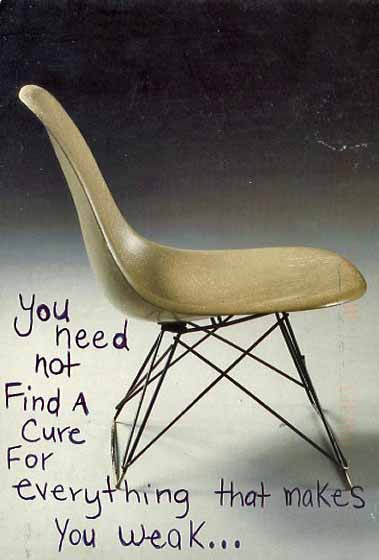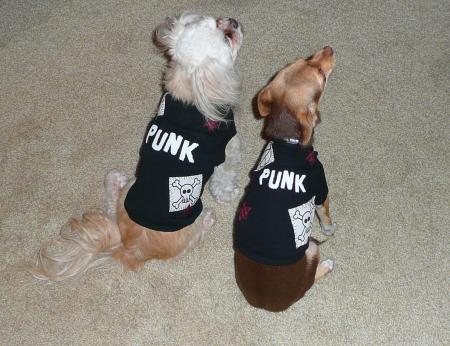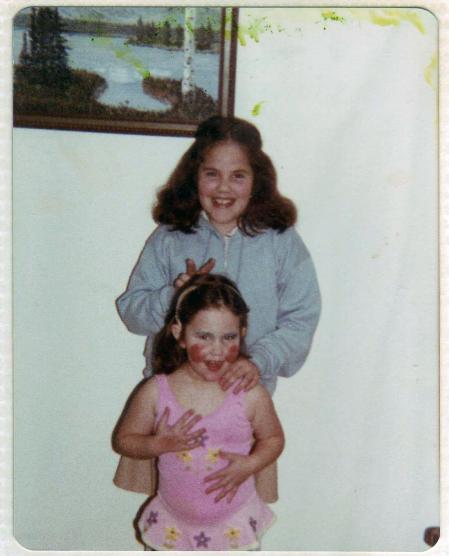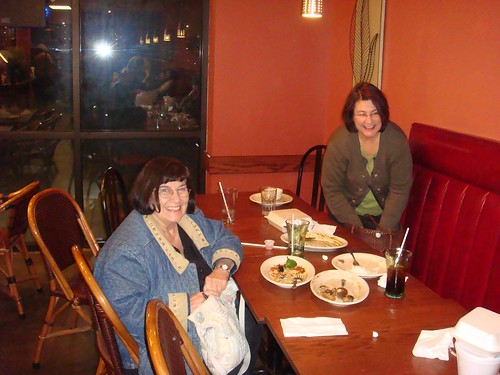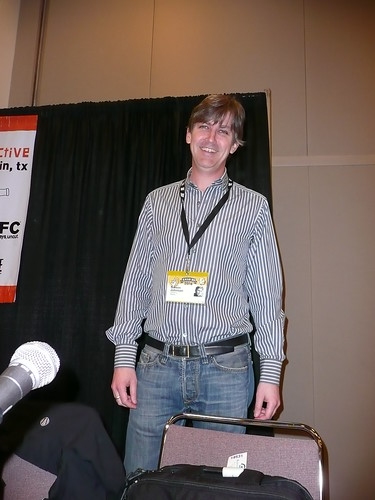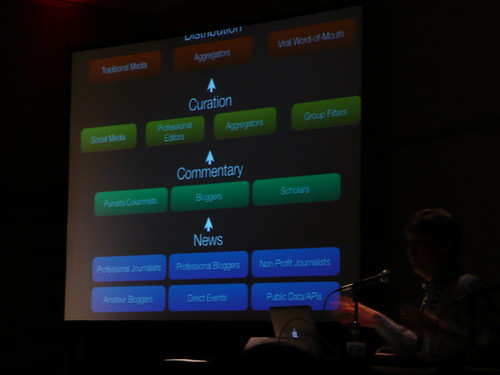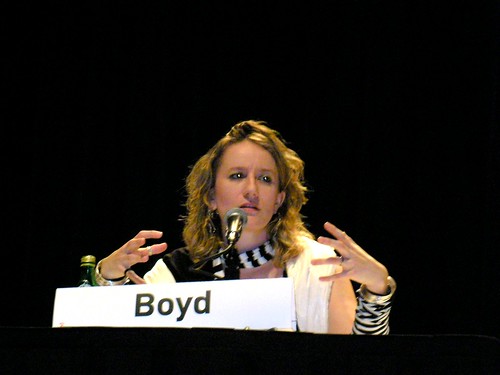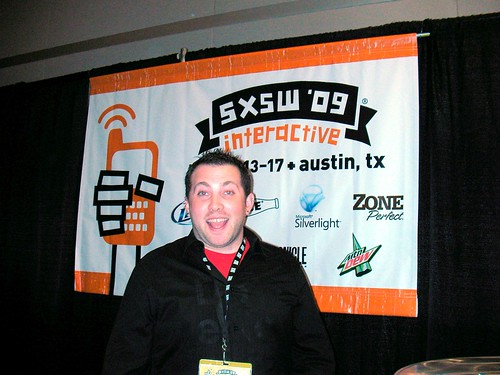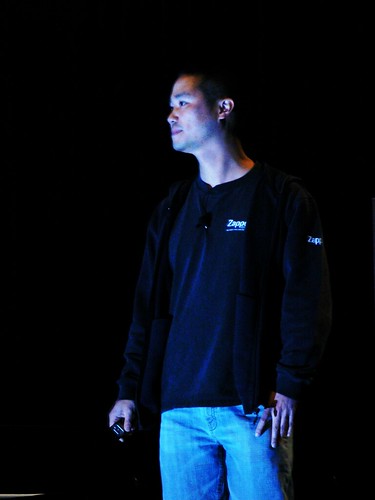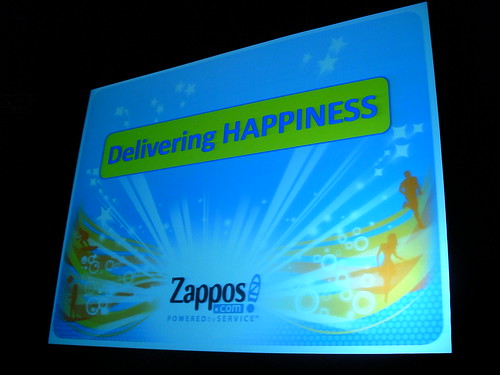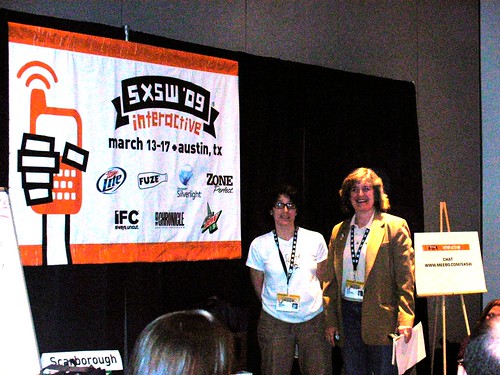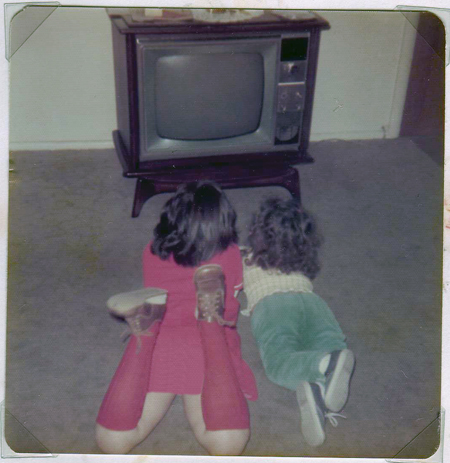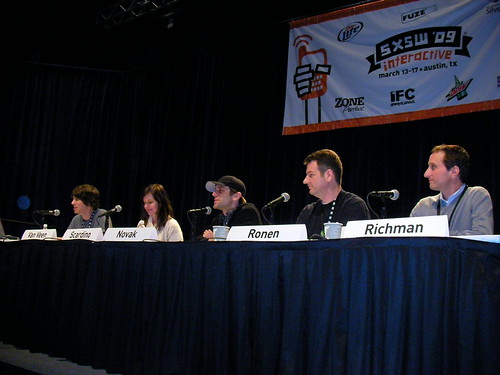
Moderator: Ricky Van Veen Co-Founder/Editor-in-Chief, CollegeHumor.com
Meredith Scardino Writer, The Colbert Report
B.J. Novak The Office
Avner Ronen CEO, BOXEE
Keith Richman CEO, Break Media
Ricky Van Veen:
When you look at the past, it was porn that was driving innovation, but now, it’s comedy.
I do College Humor.com a TV show on MTV now. Something cool that I like: Lonely Island Album.
Meredith Scardino:
I work at the Colbert Report and work in NY. I used to work at Letterman and Best Week Ever. She used to work with Atom Films.
What I like right now. Internet videos. Onion News Network
B.J. Novak:
BJ Novak Writer and producer of The Office. Internet watchers tend to be picky and tend to watch it alone. It’s a true test of comedy when you can make just one person laugh. We watch videos at lunch every day. There is a DJ that plays internet videos. Favs: Flea Market Montgomery, Charlie Bit Me
Avner Ronen:
Works at Boxee. Favs: Google.com I think they’ve done a great job.
Keith Richman:
Run Break Media. Break.com and Chickipedia. Favs: John La Joy and Honest R & B Song. Funny song genre is making a comeback.
Ricky Van Veen:
Why has comedy has lead the way?
Avner Ronen:
It has a quick punch too it. There doesn’t necessarily have to be a long story. There is a quick payoff.
Meredith Scardino:
My favorite show was America’s Funniest Home Videos. It was the kind of clips that you could show your friends. I used to have a collection of VHS tapes that I would show my friends. Now we can do that easily. That’s why people love it.
B.J. Novak:
Comedy is like music a little bit. A joke is structured like a song. There is a logic to it and it’s over quick. There is a payoff.
Ricky Van Veen:
What are the differences between Colbert and Letterman online?
Meredith Scardino:
Letterman, the site was supplemental. Colbert Nation is like an army of people that are motivated to follow him. User submitted content is used on the show, like “Make John McCain Interesting.” Amazing remixes of Stephen Colbert’s words.
B.J. Novak:
Directing The Office Webisodes. We don’t know what to do with them. We just know that they’re funny and popular and that we keep putting them on. Right now, it’s just a temporary experiment. We have kept the webisodes separate, but they ARE considered canon in our minds. Webisodes cost about the same as a day of shooting.
Keith Richman:
Monetizing comedy online is much worse than monetizing on television. We find sponsors directly. 93% of their advertising money is for television. We can point to the millions of people on our sites, but we aren’t getting the same amount of respect from advertisers as television gets.
Most web content is not good, but there are WAY more people creating it than television. It’s a numbers game and we have more people on our side.
Ricky Van Veen:
Are we living in a bubble? People watch 151 hours a month. TV is at an all time high, but we are canceling our cable. Are we the trend setters? Are more people going to be canceling their cable or are we an anomaly?
Avner Ronen:
Cable isn’t going away anytime soon. Soon no one will care whether it was made for the TV or made for web.
Ricky Van Veen:
Will the consumer know the difference?
Avner Ronen:
No. There is always a place for good content. People don’t care if it came from NBC or some guy who just makes good content. I don’t like to say anything about NBC. In general, sometimes they are challenged.
Keith Richman:
Cable has done a good job of branding. People know to come to College Humor for certain content. Our ability to finance shows is getting better. It will be interesting in five years to see where the money comes from.
Ricky Van Veen:
What is the relationship between TV and online. We’ve all seen the “Everything Is Great and Nobody Is Happy” bit online. What if he hadn’t been on Conan. If he had just been in front of a webcam?
Meredith Scardino:
Conan may have given it a stamp of legitimacy, but people give it a stamp as well. If you sent it to me, I would watch it.
Avner Ronen:
It’s the quality, not who filmed it.
Keith Richman:
In a world where there is so much content, how do you get discovered? That’s what Conan does. He’s an editor.
Ricky Van Veen:
Does TV give content more legitimacy than the web?
Meredith Scardino:
Our parents are just a little behind. When I worked on Letterman, all their friends were all excited. When I worked at Colbert, there wasn’t as much bragging rights for parents.
B.J. Novak:
If the Chocolate Rain guy have moved you to tears with his voice, would he have been as popular? Comedy hits harder than emotional stuff.
Ricky Van Veen:
People want to be funny. People want their friends to think that they are funny.
Meredith Scardino:
There is an amazement factor to some videos (like the mentos guys or the lion reunion). Those tend to be the things that move as well.
Avner Ronen:
We get hundreds of pitches for series and they all start out with “This is so funny.”
Ricky Van Veen:
People see online as a stepping stone. Will the web end up as an end game, or will it always be a stepping stone?
Meredith Scardino:
You can throw up a website on your own. It’s harder to get on TV than to get on the web.
B.J. Novak:
If Lonely Allan started a web show now, they would be a huge success.
Avner Ronen:
Money is recognition. When people can make money on the web, then people will be happy to stay there.
In the future, TV and the web are going to be one and the same.
Keith Richman:
The guys who are successful in Hollywood want creative freedom so they want to do the Internet.
B.J. Novak:
Are celebrities scared of the Internet? Yeah. That’s because it’s new and the infrastructure isn’t there. People don’t want to look foolish. It’s the wild West.
Keith Richman:
A lot of people are scared because the Internet is democratic. They are scared of falling flat. I’d be scared of switching medium as well.
Meredith Scardino:
Michael Scara has done a bunch of funny things on the Internet. Comedians are doing well online.
Ricky Van Veen:
Can Twitter save live television viewing?
Avner Ronen:
I think Twitter is great for news. It’s more challenging with the Office because no one watches the show live. Around live events, then maybe it has a way.
B.J. Novak:
The best answer is what you want it to be is probably what it will be. Everyone wants basically the same stuff, and eventually someone will figure it out and we’ll get what we want. Picture what you want and it will probably show up.
Ricky Van Veen:
What about interactivity?
Avner Ronen:
I think people will have different tastes for different kinds of shows. It depends what you’re doing. Everybody is scared and no one should be scared. The only people who should be scared are people who think that they can make crappy shows.
B.J. Novak:
No one is watching a crappy show on the Internet. Just okay shows are in trouble with Internet.
Ricky Van Veen:
What about the change of tech for your business?
Keith Richman:
I get excited because there will be a blending of models. The economics are getting better. You’ll have to make smarter bets. There is going to be better stuff. Someday, something will start on the Internet and it will be a multi-platform success. The Internet will be the discovery zone. Maybe people will go to the Internet first.
Meredith Scardino:
I’m excited about the future. I don’t think the platform matters. Good content will survive. It’s just how you watch it will change.
Keith Richman:
People who can do a little bit of everything will be able to be more successful.
Diggnation is doing it right. They are building a library and an audience.
B.J. Novak:
My only fear is not being good enough. You WILL have your chance, but you might not be good enough.
Ricky Van Veen:
We implemented Facebook share and our unique users just went skyrocketing. Social Networking sites have been a great boom for us.
Keith Richman:
Content has nine lives on the Internet.
Character development is harder. Jake and Amir are character driven, but that world won’t exist on the YouTube environment.
Ricky Van Veen:
The reason we started making Jake and Amir, it was cheap. Once we did it enough, then people liked the characters enough.
Ricky Van Veen:
What is considered a hit? Are you the number one video on Digg? It’s the crowning achievement for us.
Keith Richman:
We don’t know what a hit is? A girl eating a bug. It’s hard to know. A good title and a good thumbnail will carry you a long way.
B.J. Novak:
The Human Giant video about viral videos.
Ricky Van Veen:
We had a joke section for a while. It was popular for a while, but the second video came, it took over.
B.J. Novak:
I have a hunch that poetry is going to make a comeback. Based entirely on Twitter. The short form will come back.
Scene that took off in a surprising way? There are a lot of remixes of our characters. The Fire (Ryan started the fire). We watched it mesmerized. It’s like a blog saying they want to see more of Jim and Pam.
Meredith Scardino:
People pay attention. They are looking to see if people liked their jokes.
Ricky Van Veen:
It’s hard to go from the Internet to TV. On the Internet I can tell totally how long they watched and where they are. On TV, I only get ONE number. I can’t believe it’s still around.
Meredith Scardino:
The NEWS is always funny to me. Every day there is someone doing something funny.Thank GOD for the news every day. I idolize Conan O’Brien or Stephen Colbert. I used to watch SNL. I used to think that I could write for SNL. It looked fun. Whenever you see someone doing great things, you get inspired by it.
Ricky Van Veen:
The industries are lagging behind technology. Family Guy was canceled and it came back.
B.J. Novak:
If you are beloved, you benefit from the Internet. If you are an event you benefit from the Internet.
Avner Ronen:
The networks are paying very close attention. They would rather for you to watch shows on TV because they make more money from the television than online. The monetization is different.
B.J. Novak:
I think the rule is the same as it always was. Do something because you think it’s funny. Keep doing it if other people think it’s funny.
Ricky Van Veen:
How should video should be released online? Websites live and die on monthly unique visitors.
Avner Ronen:
Watching has changed. People are watching a full season in a weekend. On the Internet, you can decide how you want to watch the show.
Keith Richman:
If it’s good, release all six. Most of the time, it’s hard to be good on a consistent basis.
I love to think that power is shifting, but it is about knowing people. If something gets popular, then that’s what featured. Get to know the editors for various blogs.
B.J. Novak:
When people write a pilot, they spend so much time introduce characters. Most people don’t see the pilot. I’m sure it will adapt.

